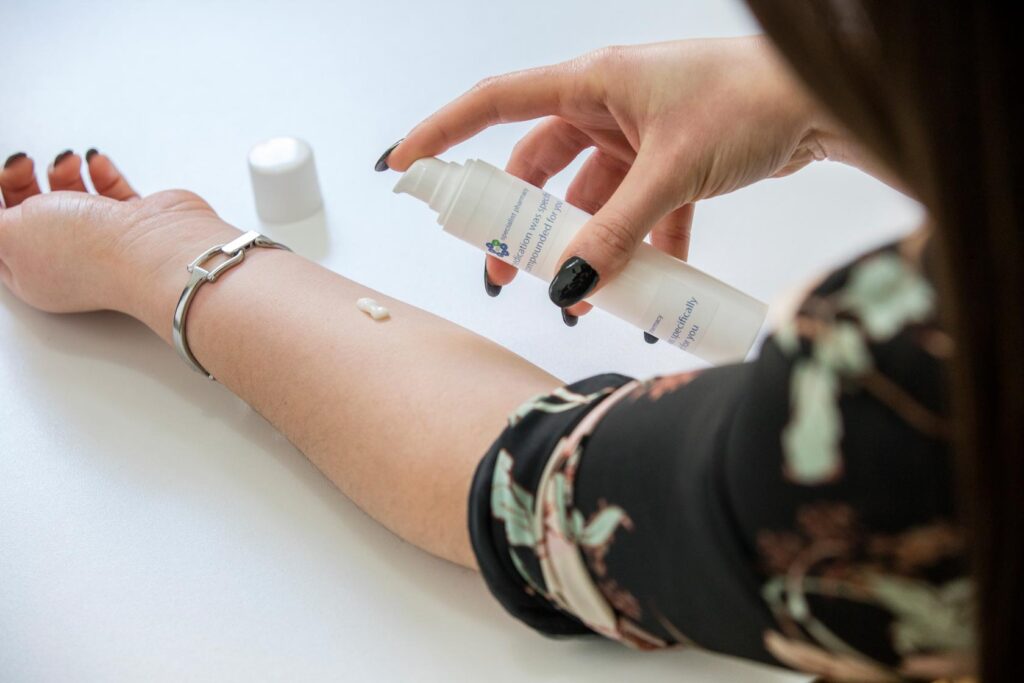That basically sums up what’s been going on in the world of HRT since the summer of 2002, when news of the canceled Women’s Health Initiative study broke. Main-stream doctors and researchers have been scrambling to clean up the mess they made after years of prescribing dangerous synthetic hormones and horse hormones to thousands of women. I’ve been doing my own version of damage control, too-explaining to my patients and to you the difference between real, bio-identical estrogens and the synthetic versions that caused so many problems. But now that things have quieted down somewhat on the estrogen front, it looks as if there’s controversy brewing about testosterone-again.
An exact parallel to the Women’s Health Initiative debacle occurred in the 1940s and 1950s, when patent medicine companies sold hundreds of thousands of men a patented, so-called “hormone” called methyltestosterone, pawning it off as the real thing. After a few years of taking this stuff, which had never been found in human or animal bodies before, many of the men developed liver cancers and heart disease. The experts of the day proclaimed that “testosterone therapy” was dangerous, so testosterone research went into a steep decline and didn’t recover until the late 1980s and 1990s.
Last November, a new group of “experts,” convened by the Institute of Medicine, picked up where the old ones had left off, declaring that men shouldn’t consider testosterone as preventive medicine against age-related symptoms. The committee concluded that “existing scientific evidence does not justify claims that testosterone treatments can relieve or prevent certain age-related problems in men.”
I could hardly disagree more. A normal level of testosterone, sustained for a lifetime, is one of the most important anti-aging and staying-healthy tools a man can have. It just depends on what type of testosterone. And, again, synthetic–and patentable– just doesn’t cut it.
For over 30 years, I’ve worked with men ages 45 and up whose symptoms and tests indicated a need for bio-identical testosterone. The results have been gratifying for everyone involved. Most notably, bio-identical testosterone therapy helps improve mood, attitude, cognitive ability, and general outlook on life. Many wives and families have observed that “Grandpa is a lot less grumpy,” remembers things better, and laughs and smiles a lot more often.
See Also: laser eye surgery Sydney

Plus, bio-identical testosterone improves muscle mass and strength, rebuilds bone, strengthens the heart and blood vessels, lowers total cholesterol and blood sugar, raises HDL (“good”) cholesterol, lowers blood pressure, lessens the chances of blood clots, improves tissue oxygenation, improves the health of a non-cancerous prostate gland-and that’s all before we get to testosterone’s positive effects on libido and your sex life.
So what’s all the fuss about? The chairman of the panel said in part: “Recent experience with the Women’s Health Initiative-which studied hormone therapy in postmenopausal women for many years-underscores the importance of approaching future studies of testosterone therapy thoughtfully and carefully.”
The Institute of Medicine committee is apparently more than a little confused, pointing to bad results from a horse hormone and synthetic, patentable “progestin,” and using those results to brand real hormones-even natural, bio-identical ones-as potentially dangerous. And they’re also ignoring results of research using bio-identical testosterone stretching back to 1935. But then, I’ve come to expect this from medical “experts.”
So instead of relying on the half-truths the “experts” continue to pass off as absolute fact, let’s take a look at some of the studies published over the last five years, which continue to show that bio-identical testosterone is good for men who need it.
Safety first
Let’s address testosterone safety first. Remember, when I refer to testosterone, I mean bio-identical testosteronethe same molecules present in human bodies forevernot some patentable pseudo-testosterone.
As might be expected, the Institute of Medicine committee played on the fear of prostate cancer to discourage testosterone therapy. “There is still much we don’t know about whether testosterone therapy might increase the risk of prostate cancer,” said committee chair Dan Blazer, professor of psychiatry and behavioral sciences, Duke University Medical Center, Durham, N.C. According to their report: “The committee found no compelling evidence of major adverse side effects resulting from testosterone therapy, but the evidence is inadequate to document safety.” The evidence is only inadequate if you refuse to acknowledge it, like all of these so-called experts. There are actually dozens of studies showing just how safe testosterone therapy really is.
For example, in 2002 the International Journal of Andrology published a study that examined 207 men, ages 40 to 83, who had all been found to have low or low-normal testosterone levels.1 The researchers looked at multiple parameters, including prostate volume; PSA; lower urinary tract symptoms, like frequency, urgency, “dribbling,” etc.; and measured levels of several other hormones, including di-hydrotestosterone, or DHT, estradiol, and LH, a marker hormone that has an inverse relationship with testosterone levels-the more LH, the less testosterone and vice versa.
Of the 207 men studied, 187 responded favorably to testosterone treatment. These 187 all showed declines in LH production, as well as improvement in every other parameter measured: Their prostate glands all decreased in size, their PSA numbers went lower, and frequency, urgency, dribbling, and getting up at night all improved.
This study indicates that, far from causing prostate trouble, testosterone is actually beneficial for the prostate gland in the vast majority of cases.
The more testosterone, the sharper your brain…
Researchers also continue to demonstrate that testosterone is beneficial for male mental function. Here are a few excerpts from some of the recent studies supporting this conclusion:
- “short-term testosterone administration enhances cognitive function in healthy older men” (2)
- “decreased serum testosterone levels….adversely affect verbal memory in normal young men. These results suggest that short-term changes in sex steroid levels have effects on cognitive function in healthy young men” (3)
- “beneficial changes in cognition can occur in…men using testosterone replacement and di-hydrotestosterone [DHT] treatment…” (4)
- “Positive associations between testosterone levels and cognition are consistent with an effect of androgen treatment…” (5)
That’s all I have space for in this issue, but there’s much more research showing that adequate bio-identical testosterone is import-ant for male cognitive function. Hopefully the “experts” will get around to reading it someday. But in the meantime, let’s move on and go over testosterone’s benefits for your heart.

70 years of heart-health benefits
Not one piece of research since the 1930s has shown bio-identical testosterone to worsen any para-meter of cardiovascular function -quite the opposite, actually.
All the way back in the 1940s, testosterone was found to be an effective treatment in 91 of 100 cases of angina. Then in the 1970s, research showed it to be effective in improving abnormal electrocardiograms. And in the 1990s, a Chinese study showed improvement in both angina and electrocardiograms in older men using testosterone. (6)
Research continues to confirm that testosterone is good for men’s hearts. Two examples taken from very recent studies:
- “Men with proven coronary heart disease had significantly lower levels of total testosterone, free testosterone, free androgen index and estradiol…For the first time in clinical settings it has been demonstrated that low levels of free-testosterone was characteristic for patients with low ejection fraction.” (7)
Ejection fraction measures the amount of blood pumped from one of the heart’s chambers, so low testosterone is associated with less blood being pumped.
- “Testosterone reduced QT dispersion in [men with] heart failure.” (8)
- Higher QT dispersion, a measurement taken form an electrocardiogram, indicates higher risk of death from cardiac arrhythmia. That means in the above study, testosterone reduced the risk of death from cardiac arrhythmia.
A bone-building boost when you need it most
By the time most men hit 70, they “catch up” with women and have just as much osteoporosis and as many bone fractures as women do. This and many other topics are discussed in detail in the book about testosterone I co-authored with Lane Lenard, Ph.D., Maximize Your Vitality and Potency for Men Over 40. So I’ll just quote one bit of more recent research here: “After controlling for age and body mass index, bone mineral density correlated positively with estradiol and testosterone.” (9)
Once again, no one has ever reported that normal levels of bio-identical testosterone are in any way bad for men’s bones.
Don’t wait for the “experts”
If you wait for the usual suspects -I mean experts-to decide whether testosterone is good for you, it will likely be too late. If you want to protect your brain, heart, blood vessels, bones, and muscles-not to mention maintain normal libido-have your levels of testosterone and free testosterone checked routinely. Please make sure to consult a physician skilled and knowledgeable in bio-identical hormone replacement therapy, and follow the precautions in the boxes on pages 2 and 3. To find such a physician, consult the Resources section on page (8).
Keeping testosterone supplementation safe
If your testosterone levels are low and you decide to take testosterone-real, bio-identical testosterone, not a patentable version-make sure to have your PSA level checked before you start, and then check it again in two to three months. If it rises more than a little in that time, you may have uncovered pre-existing prostate cancer. Check with your doctor or a urologist right away, and stop using testosterone until you’ve fully investigated the situation.
Testosterone doesn’t cause prostate cancer all by itself. If it did, there would be an epidemic of prostate cancer in young men. But it does significantly increase the growth rate of a pre-existing cancer that may not have been detected yet.
Keeping all your hormone levels “just right”
Some of your testosterone actually gets converted into estrogen. This small amount of estrogen has important functions for men, just as small quantities of testosterone have important functions for women. In younger men, only a small quantity of testosterone is converted. But in some older men, testosterone-to-estrogen conversion is dramatically accelerated, resulting in levels of estrogens much higher than usual for men.
If you decide to use supplemental testosterone, be sure to check regularly to make sure this isn’t happening to you. At present, blood testing isn’t sufficient, because very few laboratories check estrone, estradiol, and estriol in men’s blood. I prefer 24-hour urine testing for sex steroids, which includes testosterone, estrone, estradiol, estriol, progesterone, DHEA, androsterone, and etiocholanolone. Besides, this type of testing is much less expensive than blood testing.
More to read: Degenerative Arthritis (Osteoarthritis)
